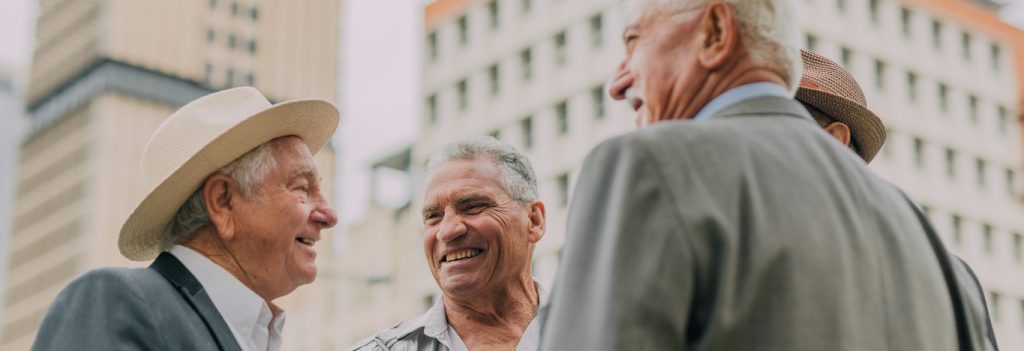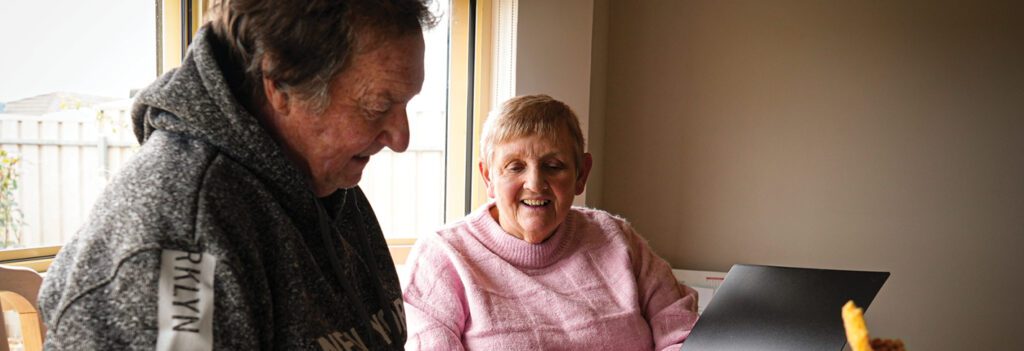Ageism: what is it?
What is it like to grow older today?
Age is one of the first things we notice about other people. It also shouldn’t be a reason why our older years can’t be some of the best of our lives.
The definition of ageism
Ageism can be defined as stereotyping, discrimination and mistreatment based solely on a person’s age. Discrimination on the basis of age is an unacceptable as discrimination on the basis of any other aspect of ourselves that we cannot change.
The impact of ageism, based on negative and incorrect age stereotypes, restricts the participation and inclusion of older people in all aspects of life. In fact, ageism can impact our confidence, quality of life, job prospects, health, and control over life decisions.
ACH Group challenges ageism
ACH Group draws guidance from our Good Lives Philosophy to be strident leaders in a movement rethinking ageing and challenging the devaluation of older South Australians.
People feel our difference through staying in control, engaging in real experiences and our active promotion of customer and resident stories that normalise ageing, inspire, and change the perception of older people’s lives and what they bring to society.
A new take on aged care advertising
Earlier in 2023, ACH Group has flipped the script on aged care advertising with its new brand campaign ‘Being yourself never gets old‘.
Let’s celebrate the life experiences and interests of older people because ‘being yourself never gets old’!
Let’s end ageism
It’s not the passage of time that makes it so hard to get older. It’s ageism, a prejudice that pits us against our future selves – and each other.
Ashton Applewhite urges us to dismantle the dread and mobilize against the last socially acceptable prejudice. “Aging is not a problem to be fixed or a disease to be cured,” she says. “It is a natural, powerful, lifelong process that unites us all.”
Watch her TED Talk below or on the TED website.
Call out ageism whenever you see it
Most ageism is more thoughtless than malicious, but that doesn’t mean it’s acceptable. If you experience it, just start a conversation and raise awareness.
Some of examples of everyday ageism include:
- Referring to a neighbour as a ‘sweet old dear’
- Making decisions for grandparents so they don’t have to stress
- Assuming older people are bad drivers or can’t do something
- Commenting ‘You look good for your age’
- Anti-ageing craze – your skin doesn’t need fixing!
Download: EveryAGECounts ‘The Real Old’ e-book
Learn more about ageism
The COTA website includes information and resources about the rights and interests of older Australians. World Health Organization released the Global report on ageism, which outlines a framework for action to reduce ageism.
Ageism awareness
Ageism Awareness Day – 9 October
The overall goal of EveryAGE Counts is to set strong, new foundations for current and future generations to age well.
Toward this goal, the Ageism Awareness Day campaign seeks to:
- Shift those deeply entrenched negative social norms about ageing and older people
- Reimagine what it means to grow older and be an older person; and reframe our older years as a valid, positive and meaningful part of life
- Drive a political and societal response to the opportunities presented by our ageing population.
How you can get involved this Ageism Awareness Day:
Find a number of resources on the EveryAGE Counts website.



